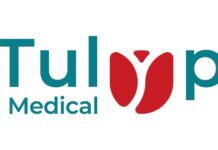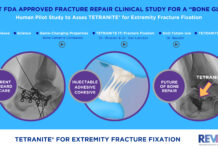DANVERS, Mass.– An analysis of more than 2,000 patients from a large U.S. real-world database finds that patients who underwent a non-emergent high-risk PCI with the Impella heart pump (n=1,447) had significantly improved survival, reduced myocardial infarction, reduced cardiogenic shock after PCI and shorter length of stay than matched patients treated with an intra-aortic balloon pump (IABP) (n=709). The study’s findings are consistent with and reinforce the results of other peer-reviewed studies over the past 10 years.
The study published October 7 in The American Journal of Cardiology. It was conducted by a group of expert physician-researchers, led by Alexandra Lansky, MD, professor of medicine at the Yale School of Medicine and a practicing cardiologist at Yale-New Haven Hospital. Dr. Lansky is also the director of the Yale Heart and Vascular Clinical Research Program and the Yale Cardiovascular Research Center, which specializes in the evaluation of interventional devices.
“This study from a large contemporary, real-world database is further evidence of the benefits of using Impella during high-risk PCI to stabilize hemodynamics, prevent hemodynamic collapse, enable optimal revascularization and improve clinical outcomes,” said Dr. Lansky.
The study examined patients in the Premier Healthcare Database treated between 2016 and 2019 with Impella or IABP for non-emergent high-risk PCI. Patients were matched using propensity-score methods to control for baseline, procedure and post-PCI medical treatment differences between the groups. The study found:
- In-hospital survival was significantly higher with Impella compared to IABP (unadjusted 95.3% vs. 91.0%, p=0.0002; adjusted odds ratio (OR) 1.55, 95% confidence interval (CI) 1.02, 2.36, p=0.042).
- Myocardial infarction was significantly reduced with Impella compared to IABP (unadjusted 2.5% vs. 11.9%, p<0.0001; adjusted OR 0.29, 95% CI 0.18, 0.46, p<0.0001).
- Cardiogenic shock after PCI was significantly reduced with Impella compared to IABP (8.3% vs. 18.9% p<0.0001; adjusted OR 0.54, 95% CI 0.39, 0.74, p=0.0001).
- A shorter length of stay for Impella patients compared to IABP patients (unadjusted 3.1 days vs. 5.5 days, p<0.0001; adjusted 3.4 days vs. 4.8 days, p<0.0001).







